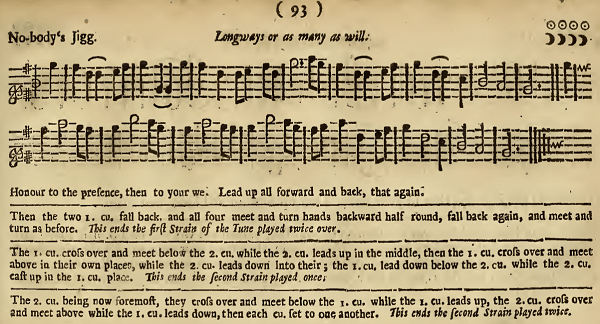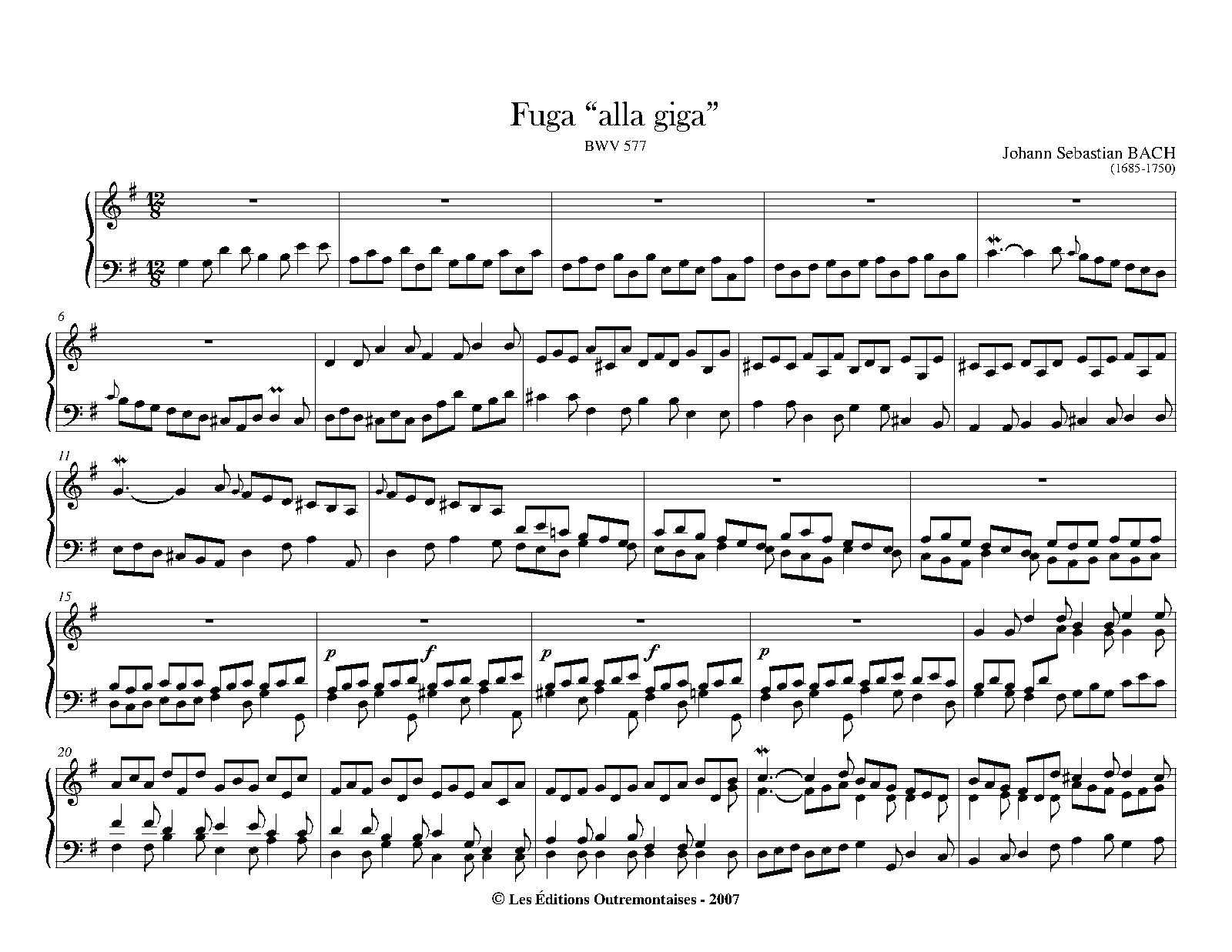Anonimo (sec. XVII): Nobody’s Jig, n. 93 della raccolta The English Dancing Master curata da John Playford e pubblicata per la prima volta nel 1651. Ensemble Les Witches.

Anonimo (sec. XVII): Nobody’s Jig, n. 93 della raccolta The English Dancing Master curata da John Playford e pubblicata per la prima volta nel 1651. Ensemble Les Witches.

Con il suo ensemble, The Broadside Band, Jeremy Barlow ha lavorato a lungo e proficuamente sulle musiche utilizzate da Johann Christoph Pepusch nell’Opera del mendicante (The Beggar’s Opera, 1728) di John Gay: la quale è l’unica ballad opera di cui si parli ancora ai nostri giorni, grazie anche al rifacimento brechtiano del 1928, Die Dreigroschenoper, che adotta però musiche originali composte da Kurt Weill. Per l’Opera del mendicante invece, com’è noto, Pepusch adattò i testi di Gay a melodie che all’epoca avevano una certa notorietà, prendendole a prestito da broadside ballads, arie d’opera, inni religiosi e canti di tradizione popolare.
Oltre a produrre un’edizione completa del lavoro di Gay e Pepusch, Barlow e la sua band hanno inciso (per Harmonia Mundi, 1982) anche un’antologia degli airs più famosi (in tutto nove brani), di ciascuno dei quali proponendo non solo la versione dell’Opera del mendicante ma anche la composizione originale e eventuali altre sue trasformazioni, varianti e parodie.
L’ultima sezione dell’antologia, che qui sottopongo alla vostra attenzione, è dedicato a Greensleeves. Comprende, nell’ordine:
una improvvisazione sul passamezzo antico, eseguita al liuto da George Weigand
Greensleeves, la più antica versione nota della melodia (dal William Ballet’s Lute Book, c1590-1603) con la più antica versione nota del testo (da A Handful of Pleasant Delights, 1584), cantata da Paul Elliott accompagnato al liuto da Weigand [1:13]
Alas, my love, you do me wrong,
To cast me off discourteously.
And I have loved you so long,
Delighting in your company.
Greensleeves was all my joy,
Greensleeves was my delight,
Greensleeves was my heart of gold,
And who but my Lady Greensleeves.
I have been ready at your hand,
To grant whatever you wouldst crave,
I have both waged life and land,
Your love and goodwill for to have.
Well I will pray to God on high
That thou my constancy mayst see,
And that yet once before I die,
Thou wilt vouchsafe to love me.
Greensleeves, now farewell, adieu,
God I pray to prosper thee,
For I am still thy lover true,
Come once again and love me.
Greensleeves, la versione più diffusa all’inizio del Seicento, secondo William Cobbold (1560 - 1639) e altri autori, con improvvisazioni eseguite da Weigand alla chitarra barocca e da Rosemary Thorndycraft al bass viol [4:07]
la versione dell’Opera del mendicante che già conosciamo, interpretata ancora da Elliott a solo [5:27]
un misto di tre jigs irlandesi eseguito da Barlow al flauto e da Alastair McLachlan al violino [6:03]:
– A Basket of Oysters (da Moore’s Irish Melodies, 1834)
– A Basket of Oysters or Paddythe Weaver (Aird’s selection, 1788)
– Greensleeves (versione raccolta a Limerick nel 1852)

With his ensemble, The Broadside Band, Jeremy Barlow worked extensively and profitably on the music used by Johann Christoph Pepusch in John Gay’s The Beggar’s Opera (1728): it is the only ballad opera still being talked about in our days, thanks also to Bertolt Brecht’s 1928 remake, Die Dreigroschenoper, which however has original music composed by Kurt Weill. It is not the same for The Beggar’s Opera: Gay’s lyrics were in fact adapted by Pepusch to melodies that at the time already had a certain notoriety, borrowing them from broadside ballads, opera arias, religious hymns and folk songs.
Barlow and his band have recorded a complete edition of Gay and Pepusch’s work, as well as an anthology of its most famous airs (nine pieces in all), of each of which they presented not only The Beggar’s Opera version, but also the original composition and some of its variants and parodies.
The last track of the anthology, the one I submit to your attention here, is dedicated to Greensleeves. It includes, in order:
a lute extemporisation on passamezzo antico ground, performed by George Weigand
Greensleeves, earliest version of melody (from William Ballet’s Lute Book, c1590-1603) with earliest surviving words (A Handful of Pleasant Delights, 1584), sung by Paul Elliott accompanied on lute by Weigand [1:13]
Alas, my love, you do me wrong,
To cast me off discourteously.
And I have loved you so long,
Delighting in your company.
Greensleeves was all my joy,
Greensleeves was my delight,
Greensleeves was my heart of gold,
And who but my Lady Greensleeves.
I have been ready at your hand,
To grant whatever you wouldst crave,
I have both waged life and land,
Your love and goodwill for to have.
Well I will pray to God on high
That thou my constancy mayst see,
And that yet once before I die,
Thou wilt vouchsafe to love me.
Greensleeves, now farewell, adieu,
God I pray to prosper thee,
For I am still thy lover true,
Come once again and love me.
Greensleeves, the most widespread version at the beginning of the seventeenth century, according to William Cobbold (1560 - 1639) and other authors, with improvisations performed by Weigand on baroque guitar and by Rosemary Thorndycraft on bass viol [4:07]
The Beggar’s Opera version (we already know it) sung by Elliott a solo [5:27]
a medley of three Irish jigs performed by Barlow on flute and Alastair McLachlan on violin [6:03]:
– A Basket of Oysters (da Moore’s Irish Melodies, 1834)
– A Basket of Oysters or Paddythe Weaver (Aird’s selection, 1788)
– Greensleeves (collected Limerick 1852).

Autore non identificato: Fuga a 4 voci in sol maggiore, Alla giga, già attribuita a Johann Sebastian Bach (BWV 577). Matthias Havinga all’organo van Vulpen (1966) dell’Augustanakerk in Amsterdam.
La giga (in francese gigue) è una forma di danza barocca, di andamento rapido e in ritmo doppio ternario, originatasi dalla jig irlandese. Per eseguire la Fuga alla giga gli organisti devono essere provetti ballerini: guardate infatti il nostro bravo e simpatico Matthias, qui sopra, come volteggia agile e leggero sulla pedaliera!
La Fuga BWV 577 — il cui manoscritto originale non è reperibile — non sarebbe opera di Bach: lo affermano, sulla base di considerazioni stilistiche, i più autorevoli studiosi del lascito bachiano. Ferruccio Rivoir, amico, collega e versatile organista, una volta mi confidò: «La Fuga alla giga non è di Bach. Te lo dicono le dita: quando suoni il vero Bach, le dita trasmettono sensazioni del tutto differenti.»
Troppo “facile”, dunque, per essere scaturita dal genio del Kantor di Lipsia, la Fuga in sol maggiore è tuttavia un brano assai gradevole, tant’è vero che è stata fatta oggetto di numerosi adattamenti: eccone alcuni, scelti fra i più interessanti:
